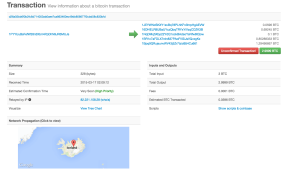WASHINGTON – To generate new income sources, the North Korean government has engaged in state-sponsored trafficking of its citizens, sending them to work as forced laborers in other countries and confiscating all or most of their wages, an issue of increased focus in the international community.
“I see it as just starting to get attention. It’s an emergent issue on the international agenda,” said Scott Snyder, senior fellow for Korea studies at the Council on Foreign Relations.
Both the Korea Economic Institute and the House’s Tom Lantos Human Rights Commission held meetings in Washington D.C. in April and May to address the trafficking.
North Korea, frequently ranked as the world’s worst human rights abuser, has lured between 50,000 and 60,000 citizens to work in industries around the globe with the promise they would keep their wages, according to a paper from the Database Center for North Korean Human Rights presented on Tuesday. Instead, the wages are sent to the North Korean government, generating as much as $2.3 billion per year.
Industries employing the laborers range from logging and mining to restaurants, and workers who complain or escape risk reprisal against themselves and their families who remain in North Korea, said Robert King, special envoy for North Korea Human Rights Issues at the State Department, at the House hearing.
Workers have been sent through bilateral contracts to around 40 countries, primarily Russia, China, Mongolia and nations in Africa, central Europe and the Middle East, according to a State Department Trafficking in Persons Report from March.
Snyder said the increased trafficking is one of North Korea’s ways of earning foreign exchange. Previously, the government sustained itself through other illicit means, such as drug trafficking, counterfeiting and weapon sales, but those income sources have been declining.
“They’re running a trade deficit with the rest of the world and it’s mostly shown in trade with China,” Snyder said.
“Whatever North Korea can do to make a profit it does, and much of it turns out to be illegal.”
One defector, Lim Il, told the Lantos commission that he had been a state employee in North Korea but went to Kuwait to work at a construction company, where he was required to put in 14-hour days under strict surveillance, with two days off per month.
“I think we were slave laborers,” Il said.
After escaping to the South Korean embassy, he learned that his salary had all gone to the Office of the Worker’s Party that manages foreign currency. “The money obtained through the export of laborers overseas [is] used as a personal fund for Kim Jong-un,” the Database Center for North Korean Human Rights paper said.
The U.S. and international community are facing difficulty curtailing the trafficking, said John Sifton, Asia advocacy director at Human Rights Watch at the House hearing. The biggest reasons are that most of the work occurs in Russia and China, it provides North Koreans minimal exposure to the outside world which may help undermine the government, and officials have not decided whether to approach it from a sanctions or human rights perspective.
“To address this is going to require attention and focus from the international community,” Snyder said. “And the best way of doing that would probably be to make this an issue of concern for the counterparts.”







